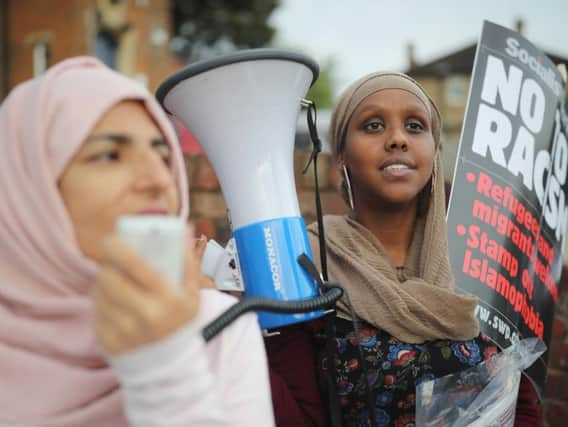New guidelines published to tackle 'othering' of Scotland's Muslim communities


The guidelines, produced by the Scottish Parliament’s Cross Party Group on Tackling Islamophobia in conjunction with Newcastle University and the National Union of Journalists, were written with the aim of helping to improve the accuracy of the portrayal of Muslims, as well as to try and increase their representation in Scotland’s media.
It is hoped the document will become a regularly used tool for reporters, editors, broadcasters and other media professionals.
Advertisement
Hide AdAdvertisement
Hide AdZara Mohammed of the Muslim Council of Scotland said: “One of the key challenges we’re facing in addressing Islamophobia is the impact and consequence of negative media headlines which have contributed to the othering of the Muslim community and these guidelines can wake up the media to the damage of the headlines, so it’s a key step.”
She added: “One of the worse things is the portrayal of Muslim women as being oppressed and forced to wear headscarves, it’s all very dark and grim and doesn’t capture the every day realities of Muslim women so people get a skewed impression and Muslim women are attacked as a result, with scarves ripped off or being called letterboxes. Words do have an impact and the media needs to be responsible.
"We also need more diversity and acknowledgement in the media that our communities are not just white.”
Research for the project involved focus groups with young Muslims, Muslim women, non-Muslims and senior journalists from print and broadcast media. The research found terminology is often used without much regard for accuracy - such as hijab and burka being used interchangeably - as well as articles sometimes referring to an individual’s Muslim faith when it is not clear why it is relevant to the story.
Labour MSP Anas Sarwar, chairman of the Cross-Party Group, said the new guidelines can help Scotland to demonstrate leadership to the rest of the UK and the world.
“Rightly or wrongly, people blame politicians and the media for rising divisions in society,” he said. “The CPG set out to address these issues and I would like to thank all the journalists and editors for their positive engagement with this groundbreaking initiative.
“These guidelines can demonstrate leadership from Scotland to the rest of the UK and other parts of the world. I hope this becomes a regularly used tool and acts as a quick guide for the media.
“By coming together to challenge all forms of prejudice we can build the tolerant and inclusive society we aspire to be. This is a fight for all of us.”
Advertisement
Hide AdAdvertisement
Hide AdFormer BBC Scotland executive producer Uzma Mir, who co-authored the report, said: “The media has significant power in shaping how Islam and Muslims are represented and therefore the extent to which Muslims experience everyday racism and Islamophobia.
“In most polls and from our own work with focus groups, many Muslims felt that there was an issue with Islamophobia and that the media played a major part in its rise.
“We hope these guidelines encourage further change and are a useful tool for those working in different roles and in diverse forms of media in Scotland.”
Report co-author Professor Peter Hopkins, of Newcastle University, said: “We know from research that problematic media representations play a key role in fostering Islamophobia so we hope that this guidance will help to improve the portrayal, accuracy, representation and terminology used about Islam and Muslims, for the benefit of all.”
John Toner, national organiser for NUJ Scotland, said: “How journalists cover issues relating to Scotland’s diverse communities and faiths influence how we view our neighbours, and we are glad to be part of these guidelines which are an important step in making our media more representative, and our society more inclusive.”